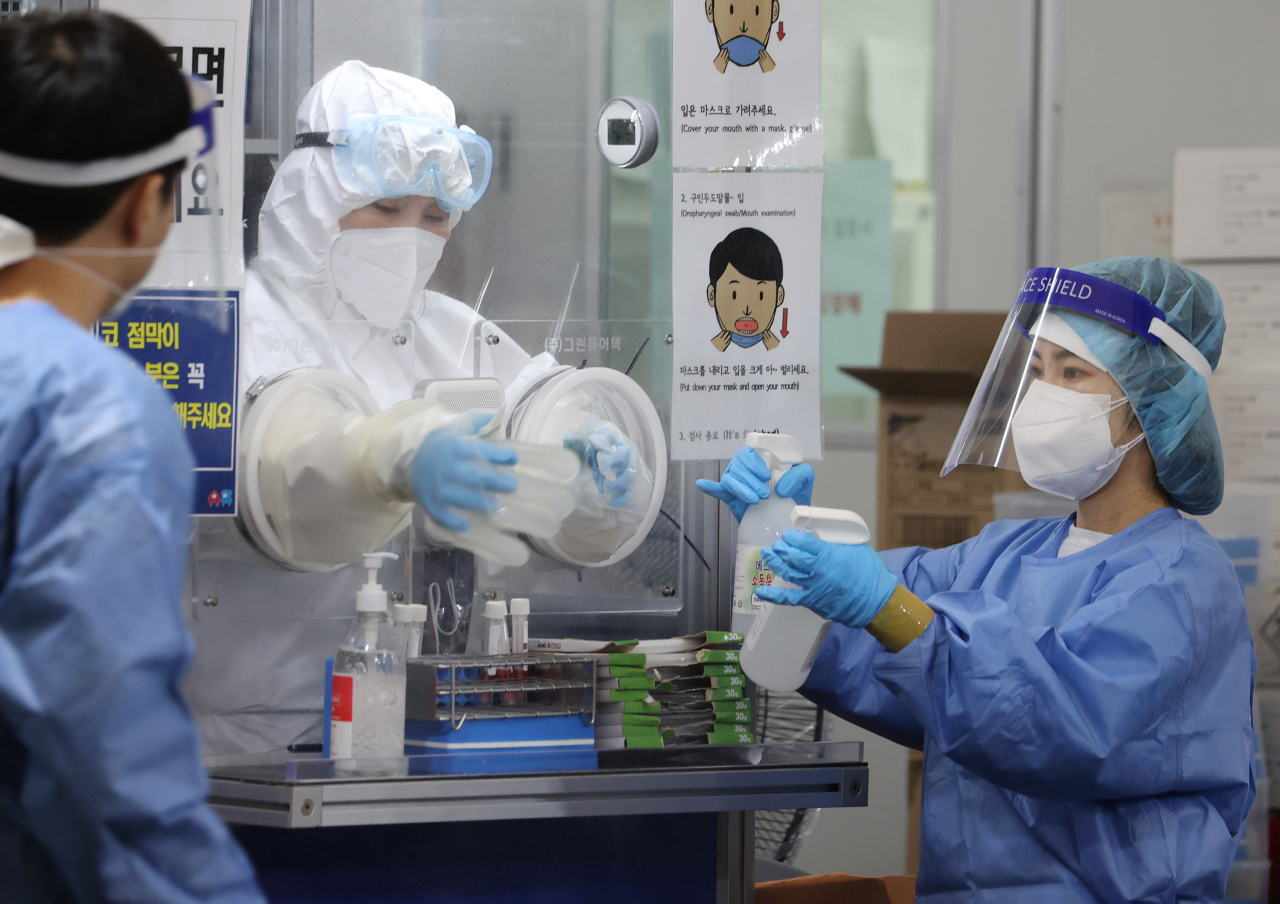 |
To ease bed shortages, Korea is expanding at-home care for COVID-19 patients who are mildly sick. By Tuesday, more than 3,000 patients nationwide were isolating at home, instead of at medical facilities. This photo taken Oct. 7 shows health care workers at a COVID-19 testing center in Songpa, southern Seoul. (Yonhap) |
South Korea is expanding at-home care in a bid to return closer to normal in about a month’s time, by the second week of November at the latest, according to public health officials.
The key to safe home care is whether remote monitoring can be done efficiently, which raises concerns for patients who may not speak Korean fluently.
According to the Ministry of Health and Welfare earlier this week, patients staying at home need to report any changes in symptoms and other important health markers, such as body temperature and oxygen saturation levels, to medical personnel via phone or video. They must also be able to use a smartphone application to monitor their health.
Patients who are not able to communicate remotely, including foreign patients who do not speak Korean, would not be placed in home care due to safety concerns, the ministry said.
In a text message response to The Korea Herald’s inquiries, a ministry official said this does not mean all foreign patients who do not speak Korean fluently will be put in facility care.
If another member of the household, who must self-isolate along with the patient over the duration of care, which is 10 days, speaks Korean, it’s permitted. Depending on the vaccination status, the said household member may need to self-isolate longer.
“It would also depend on the situation in each municipality,” he added. “If their staff can speak the language spoken by the patient, then proceeding with home care should not be a problem.”
In Seoul, for instance, there are already foreign patients receiving care at home, the city’s official said.
“Patients do not necessarily have to speak fluent Korean -- as long as they can describe their own health in Korean,” he said. For those who can’t, there are three treatment facilities around the city that are designed to accommodate them, with interpretation services or medical staff who can physically check in on them.
The ministry had said from Sept. 25 onward, home care would be prescribed for patients under 70 years of age experiencing mild or no symptoms at the time of diagnosis. Patients 70 or over can opt for home care on the condition that they have a caregiver who is fully vaccinated.
No matter their age, patients with medical conditions such as chronic heart or lung disease, or those undergoing immunocompromising therapies such as dialysis, cannot be given home care. Home care is also denied to those in vulnerable living conditions such as dorms.
By Kim Arin (
arin@heraldcorp.com)








![[Out of the Shadows] Seoul room clubs offer drugs to compete for clientele](http://res.heraldm.com/phpwas/restmb_idxmake.php?idx=644&simg=/content/image/2024/11/05/20241105050566_0.jpg)